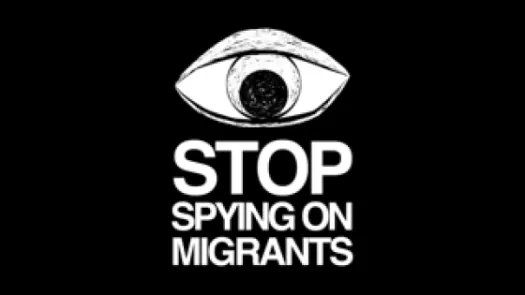Clear And Universal – The Right to Privacy at the 120th Session of the Human Rights Committee

What do Honduras, Pakistan, and Switzerland have in common? They are all bound to respect and protect the right to privacy under Article 17 of the International Covenant on Civil and Political Rights. And in July 2017, they all also happened to be under the scrutiny of the UN Human Rights Committee, which found the countries’ human rights record wanting in many respects, including the scope of their surveillance legislation.
Intelligence sharing
Reviewing Pakistan, the Committee touched upon one of the most secretive aspects of surveillance, which is intelligence sharing between countries. The Committee expressed concerns about the provision in the 2016 Prevention of Electronic Crimes Act, which allows “the sharing of information and cooperation with foreign governments without judicial authorization or oversight”.
Opacity and lack of regulation of intelligence sharing is ubiquitous across the world. Bilateral and multilateral intelligence sharing arrangements tend to be confidential and not subject to public scrutiny. They can cover an array of cooperative activities between intelligence agencies, including information sharing on a mass scale. This data can contain the personal information of vast numbers of individuals, the majority of whom are not suspected of any crime.
As noted by the U.N. Special Rapporteur on Counter-Terrorism and Human Rights “the absence of laws to regulate information-sharing agreements between States has left the way open for intelligence agencies to enter into classified bilateral and multilateral arrangements that are beyond the supervision of any independent authority”.
The Committee built upon this analysis by further specifying that laws regulating intelligence sharing must be in full conformity with obligations under the Covenant. In particular, they need to adhere to Article 17, including the principles of legality, proportionality and necessity, as well as the need to have effective and independent oversight mechanisms of intelligence-sharing of personal data.
Data Retention
Commenting on the 2016 Swiss law on surveillance, (which despite serious concerns for the overbroad powers it provides to intelligence agencies was approved in a popular referendum), the Committee was concerned by (among other issues) the lack of a specific time frame for the retention of personal data. Similarly on Pakistan, the Committee criticized mandatory mass retention of traffic data by service providers for a minimum of one year.
There is growing recognition of the significant interference with individuals’ rights caused by a regime that permits the retention of immense quantities of communications data, which is not based on individualised and reasonable suspicion. Earlier this year, the UN Human Rights Council noted in its resolution on the right to privacy that metadata “when aggregated, can reveal personal information that can be no less sensitive than the actual content of communications and can give an insight into an individual’s behaviour, social relationships, private preferences and identity”. And the Special Rapporteur on the right to privacy said in his report to the Council that metadata is “at least as revealing of a person’s individual activity as the actual content of a conversation”.
In the recent concluding observations the Committee confirmed that laws requiring companies to retain communications data are untargeted and indiscriminate in scope, and therefore do not meet the requirements of necessity and proportionality, and violate Article 17 of the International Covenant on Civil and Political Rights.
Accountability and Oversight
In Honduras, the Committee found that interception of communications had occurred widely, and that the interception had been authorised without sufficient information on the scope and purposes for such surveillance, and with no effective oversight.
These findings confirm an important truth about national surveillance oversight regimes: judicial authorization of surveillance measure is a fundamental guarantee against abuse, but judicial authorisation alone is not sufficient guarantee against abuses. As noted by the UN Special Rapporteur on counter-terrorism, “judicial involvement that meets international standards is an important safeguard, although there is evidence that in some jurisdictions the degree and effectiveness of such scrutiny has been circumscribed by judicial deference to the executive”.
Further, there are three stages when monitoring and oversight of specific surveillance measures need to be in place: when the surveillance is first ordered, while it is being carried out, or after it has been terminated.
Among the important safeguards to ensure the judicial authorisation complies with human rights standards, judicial orders need to articulate the motivation of the decision to authorise the surveillance measure, with judicial order clearly stating why the measure is appropriate for the accomplishment of the objectives pursued in the specific case; whether it is sufficiently restricted so as not to infringe upon the right in question more than necessary; and whether it is proportionate in relation to the interests pursued.
This is not the first time that the Committee has criticized states’ surveillance practices. In the last couple of years, the Committee has raised concerns and made recommendations on surveillance laws and practices in a range of State parties including: Belgium, Canada, Colombia, Denmark, France, former Yugoslav Republic of Macedonia, Italy, Kuwait, Morocco, New Zealand, Poland, Republic of Korea, Rwanda, South Africa, Sweden, Tajikistan, United States of America, and the United Kingdom.
The fact that so many countries, from every region of the world, are failing to uphold their legal obligations in the eyes of the body of independent experts established to monitor states’ compliance with civil and political rights, offers little reason to celebrate.
However, it proves an important (but sometimes still challenged point): existing human rights law provides a clear and universal framework to respect and protect the right to privacy, including in the context of the modern forms of communications surveillance.



